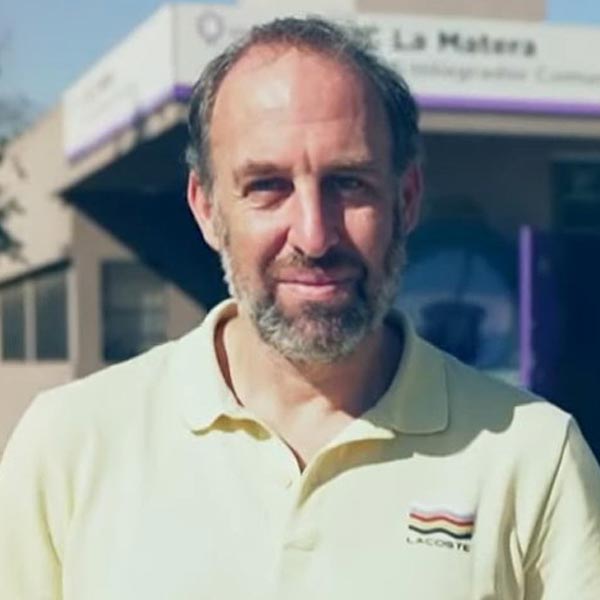Photo credit: Pablo Goldberg
In early 2020, right at the beginning of the first wave of COVID-19, both of us immediately understood the urgent need to improve and strengthen the health system in our country, particularly in the capital, Buenos Aires, so that we could confront the pandemic from the perspective of social justice. Argentina had been a signatory in 1984 to the United Nations international agreements affirming health as a human right. This meant that since then, the State has been obliged to guarantee that right by promoting access to healthcare in a timely, effective and efficient manner.
So, when COVID-19 began to spread across Asia and Europe, we became concerned about how usually strong national health systems were struggling to cope. In fighting this pandemic, we were challenged to think out of the box to identify (k)new strategies, ways of collaboration, and networking possibilities in order to align our resources, with health equity always our objective. No one could be left behind; every citizen had the right to access a diagnosis swab, a hospital bed, a medical team and oxygen as needed. This applied to every single person, no matter their race, ethnicity, purchasing power, health status, or education, regardless of the uncertainty caused by this new and frightening pandemic.
Because healthcare is a priority in Argentina, huge resources had already been invested in the health system; one example being the "Southeast Network" (SN). The SN is a large suburban region of Buenos Aires, covering an area of 661 square kilometers, with 1.8 million inhabitants. In one suburb, Quilmes, there were enough available beds in existing hospitals to practically fill a new hospital. So, when the pandemic began, we decided to design a system that could harness those available beds and in collaboration with other hospitals, coordinate our collective efforts throughout the region.
We knew we needed to devise a methodology that would not only integrate the healthcare system in the SN region but which could also inspire a broader integration of the whole health system across the entire country - in other words, the improvement of access to treatment, with social justice always a priority.
We successfully applied for a Solidarity Grant from the Atlantic Institute and after some weeks our aspirations began to be realised. The Utopia of Network of Health Services as we called it, was born out of solidarity with every single member of the participating health teams in the SN region. They not only had the necessary resources; they were also motivated by the conviction that this vital information must be shared within the network. As a result, we were able to provide a much more effective response to the pandemic than would have been possible, both avoiding the risk of overstraining the health system while also being able to assist the population in a timely and pragmatic way.
Without a doubt, this project is the first of many. We witnessed first-hand the collective power of working together and the impact it had on our population. We saw how our synergy can be a catalyst for continued equity-focused change, even beyond the pandemic. With this project, we believe we have contributed and will continue to contribute to the advancement of a more equitable and fairer society.
In the film, produced by the Atlantic Institute, which demonstrates this collaborative work, we see how Carlos, a critically ill COVID-19 patient during the second wave of the pandemic, was able to access a bed in an intensive care unit, just in time. It was because of this collaborative project between two Atlantic Fellows from different Atlantic programs that we were able to save his life. This example, alone, provides our motivation to keep striving, to continue building bridges across the seven Atlantic programs so that we can connect with other Fellows for collaborative global impact.


.avif)




.png)

